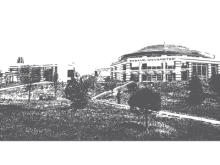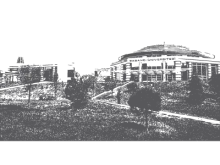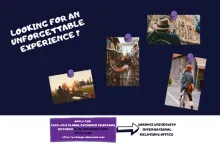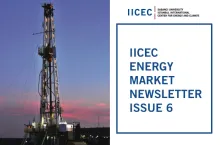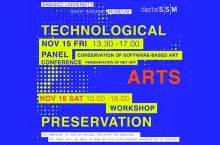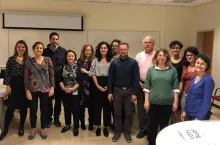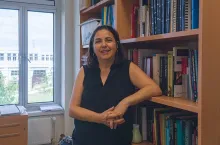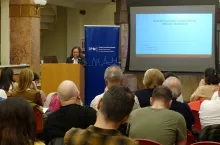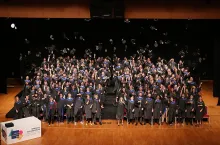15/11/2019
Application Requirements for School of Management , Management Research Non Thesis (MAMRES- NT) Graduate Programs
Applications for graduate programs are evaluated by the Admission Jury in line with the specific requirements of the program. Admission is finalized by the approval of the related Graduate School
Executive Board upon the recommendation of the Jury and announced to the applicant.
Applicants could be called for written exams and interviews. All written exams and interviews are held in English.
Periods for application are announced in Academic Calendar. Quota: 15
Deadline: November 29, 2019
Interwiev date: December 02-05, 2019
Program coordinator : Prof. Dr. Syeda Arzu Wasti Phone: 0216 483 96 62
Contact info ; awasti@sabanciuniv.edu
Applications by international applicants studying abroad are valid only after the approval and recognition of the last graduated higher education institution. Verification will be done by the candidate.
Turkish candidates graduated from a higher institution abroad should submit a certificate of equivalence by the Turkish Higher Education Council.
Application Documents and Requirements:
Candidates can apply more than one program via internet. For each program applied, separate application is formed.
Print-out of Completed Application Form should be added to the Application Package.
Applicants either can submit their application documents, stated in the other required items, in person or can send via post. For each program applied, separate application is formed.
All the application documents become property of Sabancı University.
2. Official Transcript: Sealed and taken from Student Affairs of the applicant's university indicating the courses and grades taken.
3. Diploma : Undergraduate diplomas copy.
4. English Proficiency Exam Result: As the language of instruction at Sabancı University is English, the applicant is required to submit the score of one of the English proficiency assessment exams. Recognized exams, the minimum score required and period of validity are given in the table below. Photocopies of the documents mentioned below are accepted for application; however, originals will be requested upon registration in the case of admission.
| TOEFL*IBT
| YDS, e-YDS, YÖKDİL | CPE* | CAE* | PTE* |
MAMRES-NT | 83 | 69 | C | B | 70 |
After the test date, TOEFL and PTE scores are valid for two years; CPE and CAE scores are valid for three years; e-YDS, YDS scores are valid for five years.
Applicants who do not submit a valid English Proficiency Exam score, if they are accepted to a program (fulfilling all other requirements) can only be admitted to graduate study on the condition of obtaining a satisfactory grade in Sabancı University’s own English Language Assessment Exam (ELAE). Those candidates who fail to attend or get a satisfactory score in the exam are obliged to attend and successfully complete a full course of English Language Preparation in order to continue with graduate courses. Failure to complete this course successfully will result in termination of enrollment in a graduate program at Sabancı University.
Graduates of Sabancı University are exempt from submitting an English Proficiency Exam score provided that they apply within two years of their graduation.
*According to the latest instruction letter for Foreign Language Exam Equivalencies issued by the Centre for Selection and Placement of Students in order for an exam to be accepted as equivalent, it must have taken place in a building owned by a state university.
Furthermore, according to an announcement on February 26th 2016, by the Centre for Selection and Placement of Students, certificates from exams which took place before the date of the announcement (February 26th, 2016) will be considered as meeting requirements. If the application was made before the date of the announcement (February 26th, 2016) and the exam took place within 30 days of the announcement, the certificate will also be considered as meeting requirements.
4. Online affidavit for all Graduate School of Management’s graduate program applications.
5. ALES or other similar exams are not required for MAMRES-NT program applications
6. Other Requirements:
• An applicant should have an undergraduate diploma in order to be admitted to a graduate program.
Application Address:
Applicants who apply for the programs can apply via Graduate School of Management web site. Detailed information is available on the web pages mentioned-below.
Sabancı Üniversitesi
Öğrenci Kaynakları Birimi,
Orta Mahalle, Üniversite Cd. No:27,
Tuzla, 34956 Istanbul
0 (216) 483 90 93
0 (216) 483 90 73

